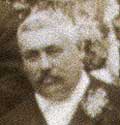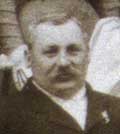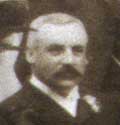 |
 |
On the death of Joseph Evan Whiting senior, all four of his sons were keen to continue working in the manner of their father, believing in education, progress and the application of business principles to farming. Henry Whiting's three brothers Joseph, George and Charles decided to work as the 'Whiting Partnership'. They employed a London accountant to watch over their finances. By the 1890s they dominated the farming scene in North Bucks. They had farms at Castlethorpe, Gayhurst, Lathbury, Moulsoe, Newport Pagnell, & Hanslope. In all they farmed over 3000 acres in the area. However, they did not own their land. Each year they paid rents of around £4200 to their landlords.
|
 |
 |
 |
They employed 160 men and boys as labourers, including six skilled mechanics for the steam engines and other machinery. (They had an annual wage bill of over £5400.) But they did not believe in just leaving the skilled work to their men. George went on a course to Fowlers of Leeds, (a firm who made steam engines) to learn how to use and maintain them. As a spin-off they started up at least two garages where machinery could be worked on. One is still standing on the edge of of Newport Pagnell on the way to Stoke Goldington. Henry's son Harry worked as a mechanic in Woburn Sands.
They were keen to use the new labour saving technology, if it made business sense, but they did not believe in cutting corners for short term gain. Their farming strategy was to, 'Keep the land clean, well cultivated and with plenty of manure'. They were also still very keen on horses. They kept over 300 on their farms for doing much of the ordinary work of pulling carts etc. Horses were also at the centre of their leisure and social life.
|
 |








